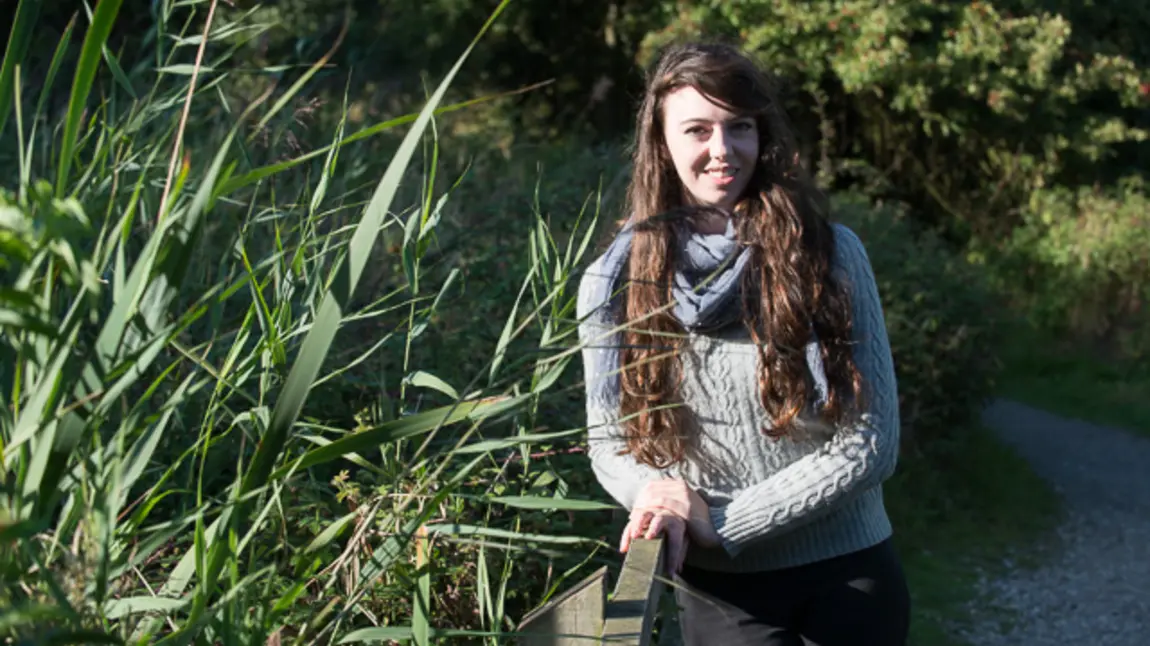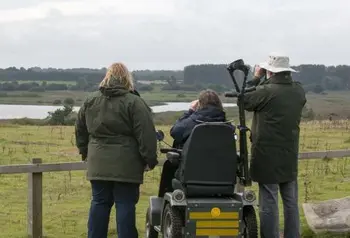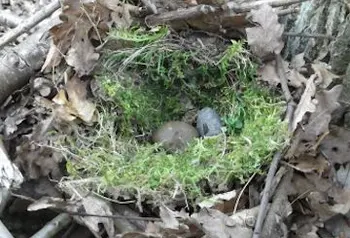Changing lives: young naturalist finds hope in Suffolk wildlife haven

Sun is streaming in through the huge glass windows when I enter the hide. It’s a glorious day and I can hear the explosive sound of a cetti’s warbler in the reedbed. I pull up a cushioned chair to look out at the freshwater lagoon. The view takes my breath away. Here – at the RSPB’s Minsmere reserve in Suffolk – nature is at its finest, at its most dynamic and diverse. Without the Heritage Lottery Fund (HLF) I wouldn’t be able to experience it.
In 2011 my life was altered almost beyond recognition when, at the age of 17, I was diagnosed with ME. ME is a neuro-immune disease that affects mitochondria, white blood cells, spinal fluid and more. In simpler words, ME causes damage to the systems that should make my body work. It is an invisible illness, but its impact is severe and the symptoms of the condition extremely debilitating.
The hard reality of living with my illness day by day was overwhelming. I had always felt the pull of nature and loved being outside. Now, suddenly, natural spaces I used to visit became inaccessible – they were simply too physically challenging for me. At a time when I felt I needed nature most of all, I found my world had shrunk around me. I felt like I’d lost a vital part of myself.
Access for all
I’ll always remember how things changed when I explored RSPB Minsmere for the first time. My visit was by chance, but when I arrived I was amazed to find that it was absolutely accessible for me. The reserve has ramps and wide flat paths, non-slip boardwalks and level bridges. These features - clearly crucial to those with mobility aids - are also invaluable for those with ME. Because of this, I could stay out longer, see more, and travel further. The accessible North Hide is where I saw my first ever avocet chicks, as well as hobbies and bitterns. I couldn’t believe I was able to get there.
“Visiting Minsmere has changed and enriched my life.”
- Lizzie
My favourite part of the reserve is the Island Mere Hide. Here visitors like me can drive to the specifically designed drop-off point at the top of the hill, where the walking distance is much shorter and more manageable. In summer the benches for resting that flank the path are surrounded with wild flowers and I’ve seen countless insects here. The Island Mere Hide has moveable chairs and benches, as well as arm-rests, making the experience thoroughly comfortable.
A place to relax
On that first day alone I saw nature on a scale that I had not experienced for four long years. I later learnt that the HLF had given grants to complete the outstanding accessibility improvements I’d used. I’ve since been able to return several times. Visiting Minsmere has changed and enriched my life. The place fills a gap in my heart. At a time when so much of my life is still uncertain, Minsmere gives me hope. I feel at peace there.
Thanks to the access provisions at the reserve, I am able to rest and explore as much as I want, at my own pace. I’ve been able to witness incredible natural spectacles, and see species like the osprey and marsh harrier which I’d never encountered before. My experience of the natural world is just the same as anyone else’s – and for someone with such a severe illness, that is life changing.
Spending time at Minsmere has made me realise my dreams are possible; that, in the right surroundings, my ME doesn’t need to hold me back. In 2015 Anne Gallagher’s acclaimed Springwatch Extra was based at Minsmere, and they asked me to help them cover accessible nature on TV. Being involved in broadcasting and getting to spend time with the BBC team was incredible, a dream come true. Not only did I make some great friends for life, it also gave me a belief in the value of my voice, and gives me the strength to share how accessible nature can change lives.
A shining example
Inclusive design in green spaces across the country is not yet commonplace, but Minsmere is a shining example of how provision for all people can change many lives. I hope other reserves use it as a blueprint. Minsmere now hosts groups like the Disabled Ramblers and, while the most common forms of disability relate to mobility impairments, the reserve works to cater for the wellbeing of all people. The reserve’s Discovery Centre, supported by HLF – a superb fully-accessible space for children and families to explore nature – is just one example.
The need to visit a green space is within us all, and for those with illness or disability, it can make life more bearable. Thanks to HLF, and the National Lottery players who have made it possible, accessible Minsmere is changing and enriching lives like mine every day.
Elizabeth Guntrip is a nature writer, broadcaster and campaigner. Find her on Twitter at: @lizzieguntrip.


